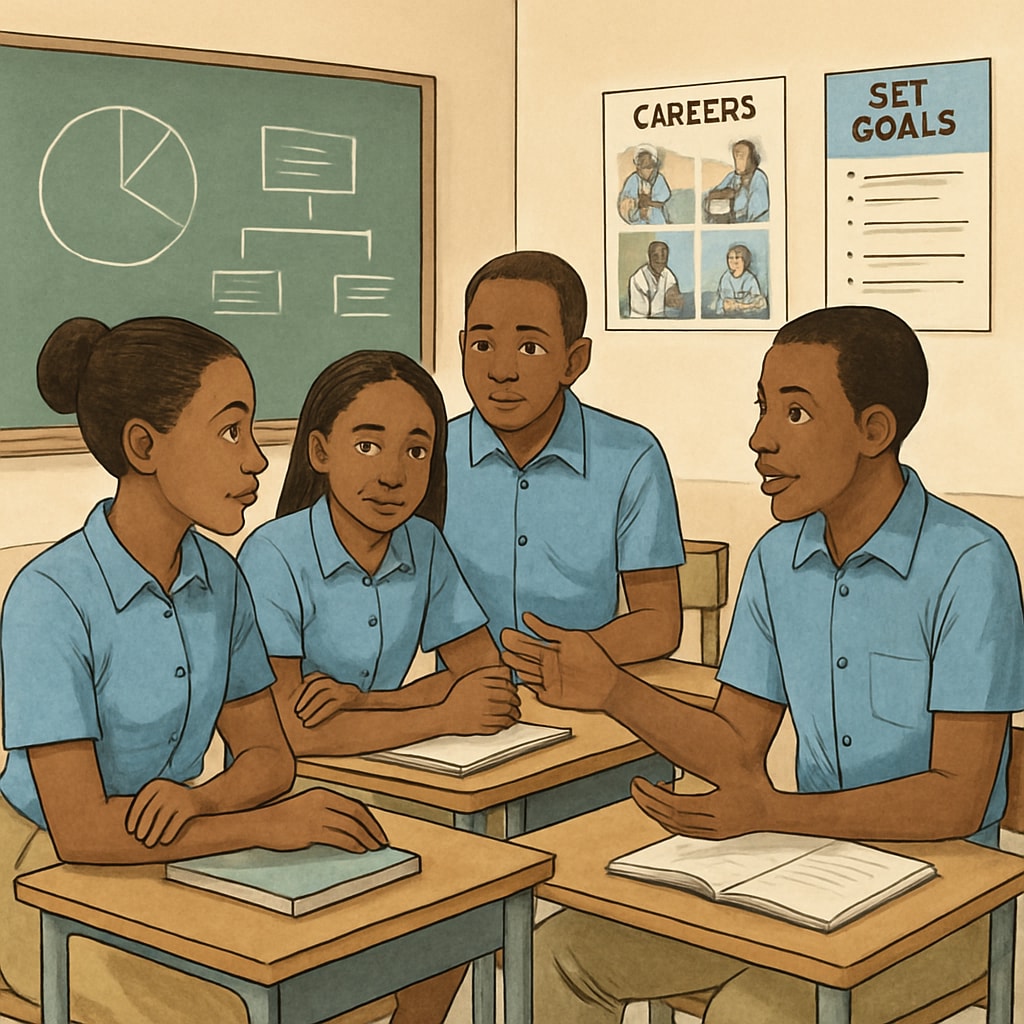For young people in Mali, career development in the financial industry is often fraught with challenges. The local financial sector offers limited opportunities, leaving many students and their families questioning their future prospects. In this context, early career planning and fostering a global perspective become essential tools for navigating these barriers. Whether through study abroad opportunities or innovative career exploration strategies, K12 students can begin their journey toward success far earlier than traditionally expected.
Understanding the Landscape: Financial Industry Challenges in Mali
Mali, like many developing countries, faces structural limitations in its financial industry. The sector remains underdeveloped, with minimal infrastructure to accommodate young professionals. This creates a bottleneck for ambitious students who aspire to make their mark in finance. For instance, according to Wikipedia’s entry on Mali’s economy, the country’s financial services contribute only a small percentage to its GDP, with most activity concentrated in microfinance and small-scale banking.
Given this backdrop, students need to think beyond domestic borders. Exploring international opportunities, such as studying finance abroad, can help them gain exposure to advanced markets and innovative financial systems. However, this requires early preparation and strategic guidance during their formative K12 years.

Early Career Planning: Building a Foundation for Success
Early career planning is critical for students to identify their interests and navigate future challenges. Schools and families play a pivotal role in this process by introducing students to various career pathways and helping them set achievable goals. But how can this be effectively implemented in a resource-limited environment like Mali?
- Career Awareness Programs: Organize workshops that introduce students to the global financial industry, including emerging roles like financial analysts, investment advisors, and fintech specialists.
- Mentorship Opportunities: Partner with professionals in the financial sector, both locally and internationally, to provide insights and real-world advice.
- Skill Development: Encourage students to participate in extracurricular activities that enhance their problem-solving, mathematical, and analytical skills, which are essential for finance-related careers.
These initiatives not only help students understand their strengths but also equip them with the tools needed to succeed in an increasingly competitive global market.
Global Perspectives: Why Study Abroad Matters for Mali’s Youth
While career planning lays the foundation, studying abroad can be a transformative experience that broadens a student’s horizons. For Malian students, access to international education offers the chance to learn advanced financial concepts, interact with diverse cultures, and build global networks. According to Britannica’s article on globalization, such exposure fosters critical thinking and adaptability—skills that are vital in today’s interconnected world.
However, pursuing education abroad requires significant preparation. Families and schools must work together to ensure students are ready, both academically and emotionally. Some practical steps include:
- Language Proficiency: Encourage students to master English or French, as these are often the primary languages of instruction in overseas institutions.
- Scholarship Research: Guide families in identifying financial aid options, such as scholarships or grants, that can offset the cost of studying abroad.
- Cultural Adaptation: Provide resources and workshops to help students adapt to new environments, reducing culture shock and improving their overall experience.

Family-School Collaboration: Supporting Career Exploration
Successful career planning and global exposure require the combined efforts of families and schools. Parents can encourage exploration by discussing career goals at home, while schools can offer structured guidance through specialized programs. Here’s how this collaboration can be strengthened:
- Parent-Teacher Meetings: Use these sessions to align on the student’s interests and progress, ensuring consistent support both at home and at school.
- Career Fairs: Host events that bring together professionals from various fields, giving students and their families direct access to role models and industry insights.
- Personalized Support: Offer one-on-one counseling sessions to address individual needs and help students map out their unique career paths.
When families and schools work in tandem, students are far better equipped to make informed decisions about their future, even in challenging environments like Mali.
Readability guidance: Short paragraphs and bullet points make the content accessible and engaging. Transition words such as “however,” “therefore,” and “for example” enhance the flow, while actionable tips ensure the article is practical and relevant for its audience.


